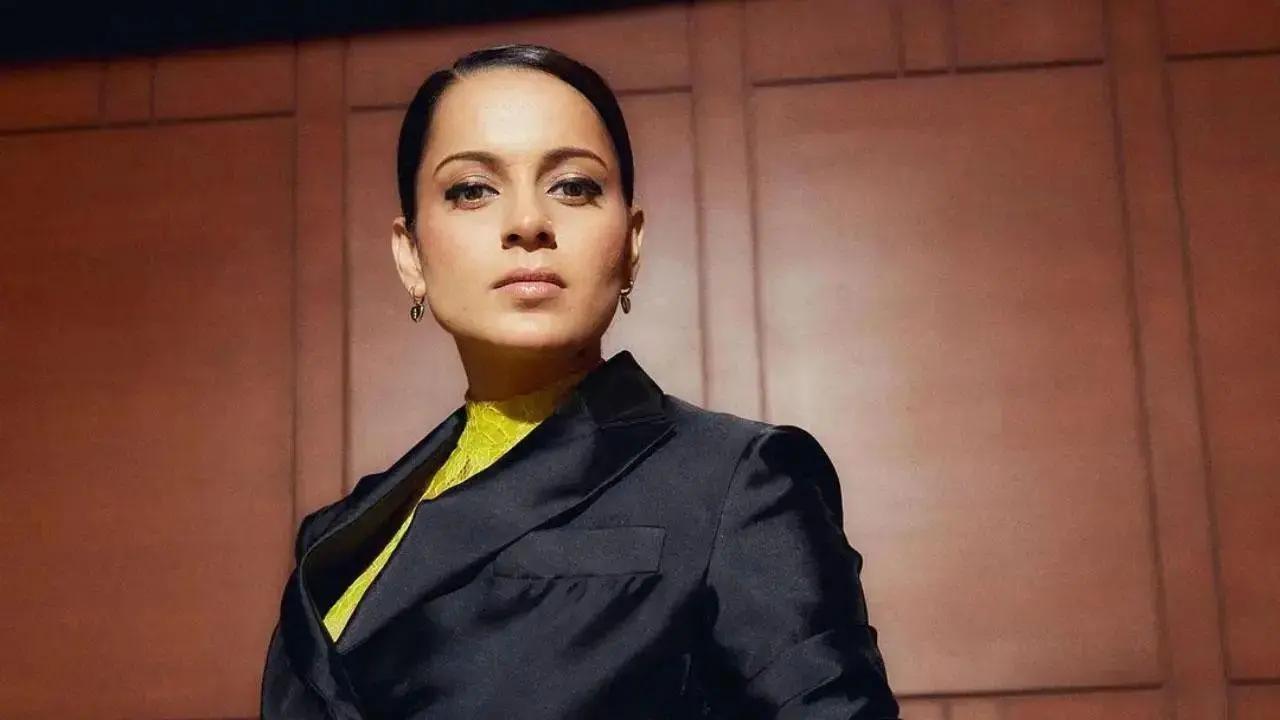
While promoting her latest film, Emergency, Bollywood actress Kangana Ranaut shared some insights into key decisions that have defined her career, including turning down significant movie offers from popular Bollywood actor Akshay Kumar. But why did she make these choices, and what were the reasons behind them?
Kangana Ranaut has cultivated a reputation for being selective about the roles she accepts, often opting for parts that she feels are respectful towards women. During a media interaction promoting Emergency, wherein she portrays the late Prime Minister Indira Gandhi, she cited her reasons for rejecting a part in Akshay Kumar’s movie Singh Is Bliing.
Addressing the issue candidly, Kangana revealed, “Akshay Kumar called me for Singh Is Bliing. Then he called me again for a couple more films. Eventually, he asked, ‘Do you have a problem with me, Kangana?’ I told him, ‘Sir, I really don’t have a problem with you.’ He then inquired, ‘Then why are you turning down these roles? I am offering you good roles.’ I responded, ‘Please understand— you also have a daughter. We want integrity for women.’” The role that she declined was eventually offered to Amy Jackson.
In the same vein, Kangana has faced her fair share of controversies and risks for the bold stances she has taken in her cinematic endeavors. Her upcoming film, Emergency, has already stirred significant controversy, leading to death threats directed toward her. The threats largely stem from members of the Sikh community, who feel the depiction of certain historical events in the movie presents them in a negative light.
Kangana was spotted at the Mumbai airport under heavy security, following these threats. In a striking appearance, she was dressed in a white and pink floral saree, accessorized with a luxury handbag and sunglasses. The heightened security underscored the gravity of the threats, which have not been taken lightly by the authorities.
A viral video shared by Kangana herself showcased the men threatening her. One of the faces of this alarming video was Punjabi influencer Viky Thomas Singh, who said, “History cannot be changed. If they portray Sikhs as terrorists in the film, then remember what happened to the person the movie is about. Remember who Satwant Singh and Beant Singh were.
. Those who point a finger at us, we break that very finger… If we can sacrifice our heads, we can also behead you.” Such strong language necessitated Kangana’s appeal for police protection.
The growing dissent has prompted calls for an immediate ban on Emergency from significant Sikh organizations. The Akhal Takht, regarded as the highest temporal seat of the Sikhs, and the Shiromani Gurdwara Parbandhak Committee (SGPC) have been at the forefront of these demands. In a press conference, SGPC chief Harjinder Singh Dhami urged the registration of an FIR against Kangana Ranaut, alleging that the film aims to “character assassinate” the Sikh community.
Speaking to the media, Dhami asserted, “The community can never forget the anti-Sikh brutality of June 1984, and Ranaut’s film is attempting to character assassinate Jarnail Singh Khalsa Bhindranwale, who has been declared a Qaumi Shaheed (community’s martyr) by Sri Akal Takht Sahib. This portrayal is unacceptable.”
The controversy surrounding Emergency isn’t Kangana’s first brush with societal pushback. Her outspoken views on various contentious topics, such as the farmers’ protest, have made her a polarizing figure both within and outside the film industry. Despite this, she remains resolute, often using her platform to voice her opinions.
Emergency, which delves into the turbulent period of the Emergency imposed in India during the 1970s, has sparked widespread discussion even before its release. Its narrative and thematic focus have stirred unease among certain groups, eliciting fears that the film may misrepresent or oversimplify complex historical narratives.
In retrospect, Kangana Ranaut’s decision to reject roles that compromise her ideals speaks volumes about her commitment to portraying women with dignity in her films. Her stand on issues, whether professional choices or socio-political concerns, underscores her mission to create meaningful and respectful cinema. This ethos perhaps explains her string of brave, sometimes controversial, choices both on and off the screen. As she continues to navigate through the challenges posed by her forthcoming projects, audiences, and critics alike will be watching keenly to see how her story unfolds — both in the reel and real world.












